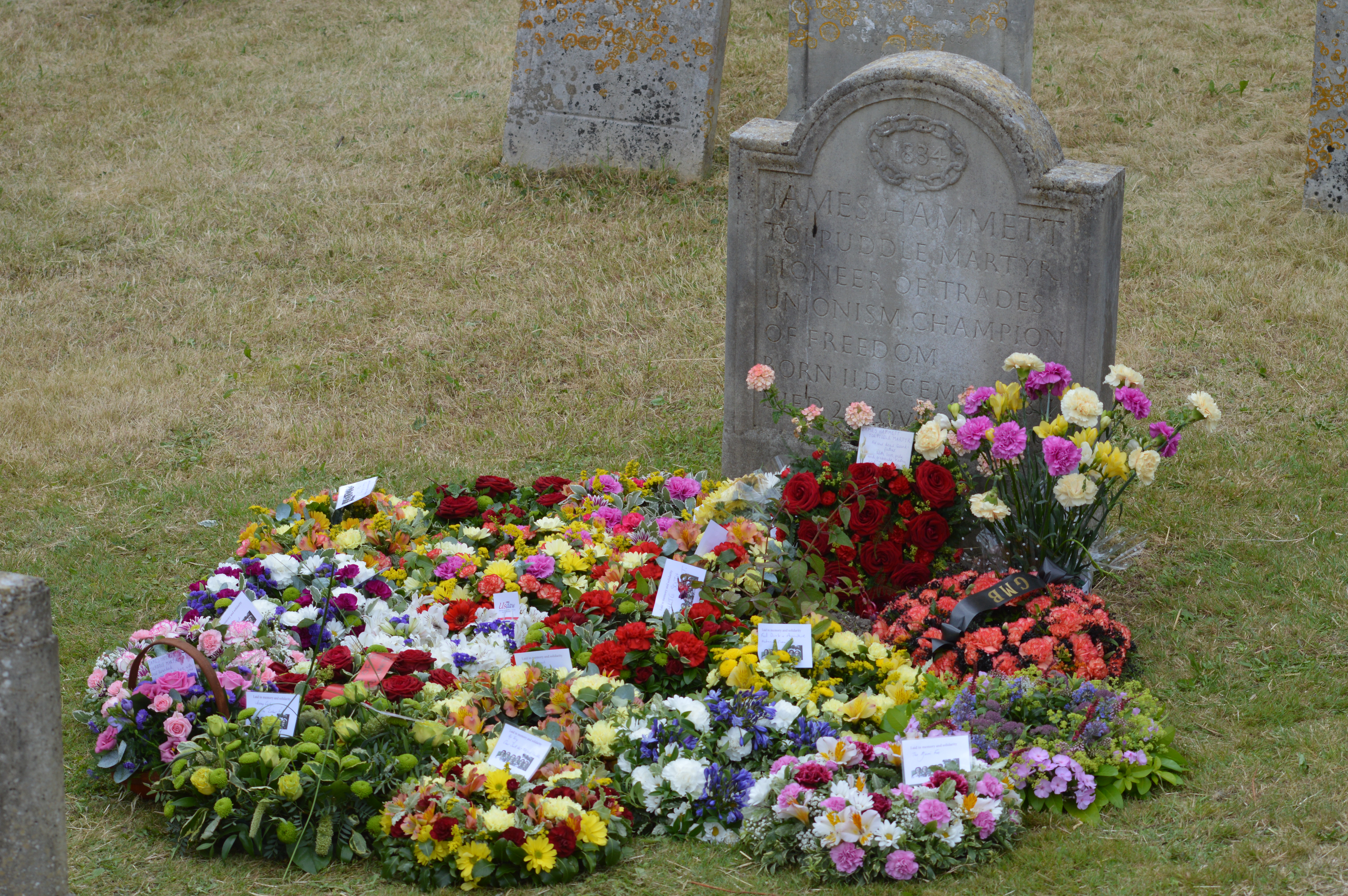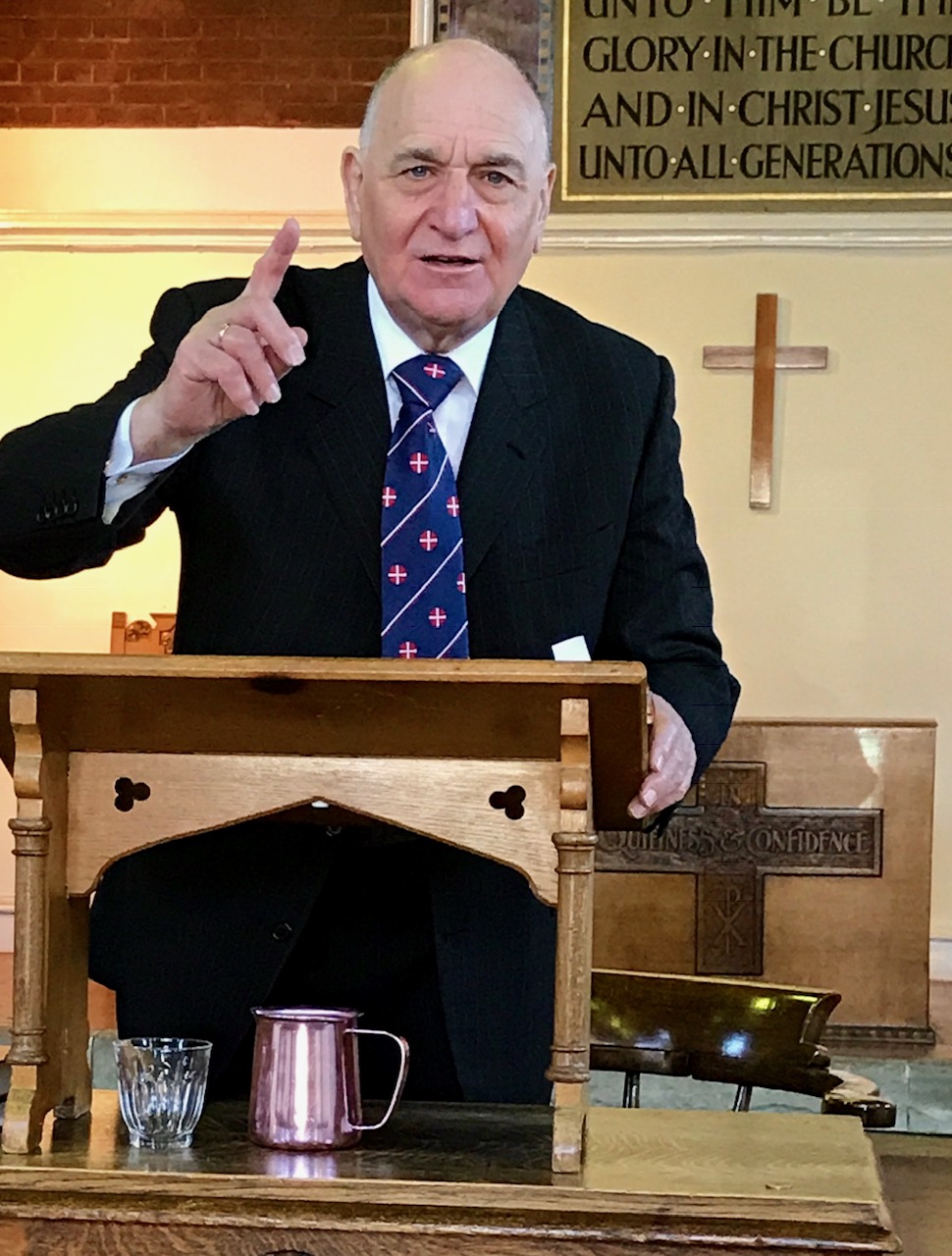|
Tolpuddle Martyrs
The Tolpuddle Martyrs were six agricultural labourers from the village of Tolpuddle in Dorset, England, who, in 1834, were convicted of swearing a secret oath as members of the Friendly Society of Agricultural Labourers. They were arrested on charges under an obscure act during a labour dispute against cutting wages before being convicted in ''R v Lovelass, R v Loveless and Others'' and sentenced to penal transportation to Australia. They were pardoned in 1836 after mass protests by sympathisers and support from John Russell, 1st Earl Russell, Lord John Russell and returned to England between 1837 and 1839. The Tolpuddle Martyrs became a popular cause for the early Trade union, union and workers' rights movements. Historical events Background In 1799 and 1800, the Combination Acts in the Kingdom of Great Britain had outlawed "combining" or organising to gain better working conditions, passed by Parliament of the United Kingdom, Parliament because of a political scare followin ... [...More Info...] [...Related Items...] OR: [Wikipedia] [Google] [Baidu] |
Methodist Local Preacher
A Methodist local preacher, also known as a licensed preacher, is a layperson who has been accredited by the Methodist Church to lead worship and preach on a frequent basis. With separation from the Church of England by the end of the 18th century, a clear distinction was recognised between itinerant preachers (later, ministers) and the local preachers who assisted them. Local preachers have played an important role in Methodism since the earliest days of the movement, and have also been important in English social history. These preachers continue to serve an indispensable role in the Methodist Church of Great Britain, in which the majority of church services are led by laypeople. In certain Methodist connexions, a person becomes a local preacher after obtaining a license to preach. In many parts of Methodism, such as the Allegheny Wesleyan Methodist Connection, there are thus two different tiers of ministers—licensed preachers and ordained elders. Historical background Loc ... [...More Info...] [...Related Items...] OR: [Wikipedia] [Google] [Baidu] |
George Loveless (preacher)
George Loveless (2 February 1797 – 26 December 1874) was a British Methodist preacher and a leader of a group of six agricultural workers who became known as the Tolpuddle Martyrs. Early life Loveless was born in Tolpuddle, Dorset, England to Thomas Loveless and his wife Dinah. From childhood he worked as a ploughman and, by 1830, had become a prominent community leader and Wesleyan preacher. Tolpuddle Martyrs In the early 1830s he represented agricultural labourers from Dorchester in discussions with farmers, who agreed to raise wages to ten shillings a week. However in Tolpuddle, farmers only agreed to pay nine shillings, and later reduced wages to seven shillings and threatened a further cut to six shillings. As a consequence, in October 1833 Loveless formed a Friendly Society of Agricultural Labourers. Although trade unionism was not illegal, Loveless and his five co-leaders were found guilty of administering unlawful oaths, a felony under an Act of 1797. Loveless and his ... [...More Info...] [...Related Items...] OR: [Wikipedia] [Google] [Baidu] |
Combination Act
The Combination Act 1799 (39 Geo. III, c. 81) titled An Act to prevent Unlawful Combinations of Workmen, prohibited trade unions and collective bargaining by British workers. The Act received royal assent on 12 July 1799. An additional Act, the Combination Act 1800, was passed in 1800 (39 & 40 Geo III c. 106). Background The 1799 and 1800 acts were passed under the government of William Pitt the Younger as a response to Jacobin activity and the fear of then-Home Secretary the Duke of Portland that workers would strike during a conflict to force the government to accede to their demands. Collectively these acts were known as the Combination Acts. Under these laws any combination of two or more masters, or two or more workmen, to lower or raise wages, or to increase of diminish the number of hours of work, or quantity of work to be done, was punishable at common law as a misdemeanor. Significance The legislation drove labour organisations underground. Sympathy for the plight of the ... [...More Info...] [...Related Items...] OR: [Wikipedia] [Google] [Baidu] |
Benefit Society
A benefit society, fraternal benefit society, fraternal benefit order, friendly society, or mutual aid society is a society, an organization or a voluntary association formed to provide mutual aid, benefit, for instance insurance for relief from sundry difficulties. Such organizations may be formally organized with charters and established customs, or may arise ''ad hoc'' to meet unique needs of a particular time and place. Many major financial institutions existing today, particularly some insurance companies, mutual savings banks, and credit unions, trace their origins back to benefit societies, as can many modern fraternal organizations and fraternal orders which are now viewed as being primarily social. The modern legal system essentially requires all such organizations of appreciable size to incorporate as one of these forms or another to continue to exist on an ongoing basis. Benefit societies may be organized around a shared ethnic background, religion, occupation, geo ... [...More Info...] [...Related Items...] OR: [Wikipedia] [Google] [Baidu] |
Shilling
The shilling is a historical coin, and the name of a unit of modern currencies formerly used in the United Kingdom, Australia, New Zealand, other British Commonwealth countries and Ireland, where they were generally equivalent to 12 pence or one-twentieth of a pound before being phased out during the 20th century. Currently the shilling is used as a currency in five east African countries: Kenya, Tanzania, Uganda, Somalia, as well as the ''de facto'' country of Somaliland. The East African Community additionally plans to introduce an East African shilling. History The word ''shilling'' comes from Old English "Scilling", a monetary term meaning twentieth of a pound, from the Proto-Germanic root skiljaną meaning 'to separate, split, divide', from (s)kelH- meaning 'to cut, split.' The word "Scilling" is mentioned in the earliest recorded Germanic law codes, those of Æthelberht of Kent. There is evidence that it may alternatively be an early borrowing of Phoenician ... [...More Info...] [...Related Items...] OR: [Wikipedia] [Google] [Baidu] |
Agricultural
Agriculture or farming is the practice of cultivating Plant, plants and livestock. Agriculture was the key development in the rise of Sedentism, sedentary human civilization, whereby farming of Domestication, domesticated species created food Economic surplus, surpluses that enabled people to live in cities. The history of agriculture began thousands of years ago. After gathering wild grains beginning at least 105,000 years ago, nascent farmers began to plant them around 11,500 years ago. Sheep, goats, pigs and cattle were domesticated over 10,000 years ago. Plants were independently cultivated in at least 11 regions of the world. Industrial agriculture based on large-scale monoculture in the twentieth century came to dominate agricultural output, though about 2 billion people still depended on subsistence agriculture. The major agricultural products can be broadly grouped into Food, foods, Fiber, fibers, fuels, and raw materials (such as Natural rubber, rubber). Food clas ... [...More Info...] [...Related Items...] OR: [Wikipedia] [Google] [Baidu] |
Friendly Society
A friendly society (sometimes called a benefit society, mutual aid society, benevolent society, fraternal organization or ROSCA) is a mutual association for the purposes of insurance, pensions, savings or cooperative banking. It is a mutual organization or benefit society composed of a body of people who join together for a common financial or social purpose. Before modern insurance and the welfare state, friendly societies provided financial and social services to individuals, often according to their religious, political, or trade affiliations. These societies are still widespread in many parts of the developing world, where they are referred to as ROSCAs (rotating savings and credit associations), ASCAs (accumulating savings and credit associations), burial societies, chit funds, etc. Character Before the development of large-scale government and employer health insurance and other financial services, friendly societies played an important part in many people's lives. Many o ... [...More Info...] [...Related Items...] OR: [Wikipedia] [Google] [Baidu] |
Poor Relief
In English and British history, poor relief refers to government and ecclesiastical action to relieve poverty. Over the centuries, various authorities have needed to decide whose poverty deserves relief and also who should bear the cost of helping the poor. Alongside ever-changing attitudes towards poverty, many methods have been attempted to answer these questions. Since the early 16th century legislation on poverty enacted by the English Parliament The Parliament of England was the legislature of the Kingdom of England from the 13th century until 1707 when it was replaced by the Parliament of Great Britain. Parliament evolved from the great council of bishops and peers that advised t ..., poor relief has developed from being little more than a systematic means of punishment into a complex system of government-funded support and protection, especially following the creation in the 1940s of the welfare state. Tudor era In the late 15th century, parliament took actio ... [...More Info...] [...Related Items...] OR: [Wikipedia] [Google] [Baidu] |
Napoleonic Wars
The Napoleonic Wars (1803–1815) were a series of major global conflicts pitting the French Empire and its allies, led by Napoleon I, against a fluctuating array of European states formed into various coalitions. It produced a period of French domination over most of continental Europe. The wars stemmed from the unresolved disputes associated with the French Revolution and the French Revolutionary Wars consisting of the War of the First Coalition (1792–1797) and the War of the Second Coalition (1798–1802). The Napoleonic Wars are often described as five conflicts, each termed after the coalition that fought Napoleon: the Third Coalition (1803–1806), the Fourth (1806–1807), the Fifth (1809), the Sixth (1813–1814), and the Seventh (1815) plus the Peninsular War (1807–1814) and the French invasion of Russia (1812). Napoleon, upon ascending to First Consul of France in 1799, had inherited a republic in chaos; he subsequently created a state with stable financ ... [...More Info...] [...Related Items...] OR: [Wikipedia] [Google] [Baidu] |
Trade Union
A trade union (labor union in American English), often simply referred to as a union, is an organization of workers intent on "maintaining or improving the conditions of their employment", ch. I such as attaining better wages and benefits (such as holiday, health care, and retirement), improving working conditions, improving safety standards, establishing complaint procedures, developing rules governing status of employees (rules governing promotions, just-cause conditions for termination) and protecting the integrity of their trade through the increased bargaining power wielded by solidarity among workers. Trade unions typically fund their head office and legal team functions through regularly imposed fees called ''union dues''. The delegate staff of the trade union representation in the workforce are usually made up of workplace volunteers who are often appointed by members in democratic elections. The trade union, through an elected leadership and bargaining committee, ... [...More Info...] [...Related Items...] OR: [Wikipedia] [Google] [Baidu] |
Combinations Of Workmen Act 1825
The Combinations of Workmen Act 1825 (6 Geo 4 c. 129) was an Act of Parliament of the United Kingdom, which prohibited trade unions from attempting to collectively bargain for better terms and conditions at work, and suppressed the right to strike. Background The 1825 Act followed on from the Combination Act 1799 The Combination Act 1799 (39 Geo. III, c. 81) titled An Act to prevent Unlawful Combinations of Workmen, prohibited trade unions and collective bargaining by British workers. The Act received royal assent on 12 July 1799. An additional Act, the Co ... and the Combination of Workmen Act 1824 (5 Geo. 4 c. 95). The 1824 Act repealed the Acts of 1799 and 1800, but this led to a wave of strikes. Accordingly, the Combinations of Workmen Act 1825 was passed to reimpose criminal sanctions for picketing and other methods of persuading workers not to work. Content This law made illegal any combinations not for the purposes of pressing for wage increases or for a change in wor ... [...More Info...] [...Related Items...] OR: [Wikipedia] [Google] [Baidu] |








